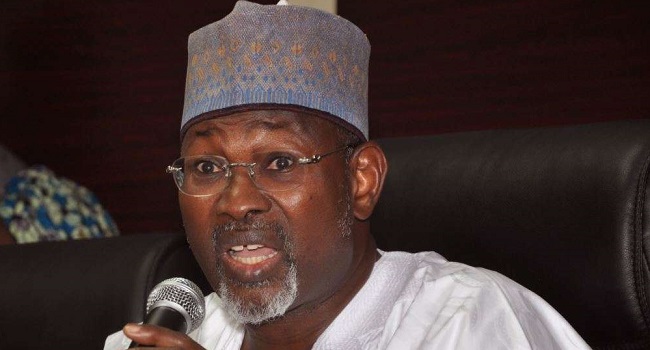News
Former INEC boss, Jega, expresses fears Nigeria may break up

A former chairman of the Independent National Electoral Commission (INEC) Prof. Attahiru Jega, on Wednesday said if care was not taken and preventive measures put in place, predictions over Nigeria’s break up might still come to pass.
The former INEC boss stated this on Wednesday in Abuja in a keynote address he delivered at a conference on ‘20 Years of Democracy’, organised by TELL magazine.
“The CIA thought that 2015 was the do-or-die period for Nigeria, that there would not be a Nigeria in the way you know after the 2015 General Elections. That has come and passed but I think if we do not take care, a lot of these predictions will come to pass. That is why we need to do quite a lot, much more than we have ever done in order to protect the integrity of the electoral process before 2023”, Jega said.
It would be recalled that there were widespread fears that the 2015 general elections would lead to Nigeria’s disintegration but the tension was doused after former President Goodluck Jonathan accepted defeat and congratulated the winner, Muhammadu Buhari.
Jega also defended the deployment of soldiers and other security operatives during elections, saying such deployment was meant to address “systemic security challenges.”
He said: “A lot has been said about the deployment of security during elections but we should recognise the fact that in Nigeria, we are faced with systemic security challenges. The presence of security is to ensure that the people have the peace of mind to come out to vote freely. The most important thing is to ensure that the security deployed is impartial and non-partisan. They should be professional in their conduct.”
He also blamed low turnout of voters during elections on the lack of trust, adding that many registered voters failed to vote.
“Perhaps, the clearest evidence of this loss of trust and confidence in the electoral process is the declining voter turnout in elections since 1999. The reported data of voter turnout as a percentage of registered voters for elections are 52.3 per cent (1999), 69.1 per cent (2003), 57.3 per cent (2007), 55.4 per cent in 2011, 44 per cent in 2015 and 37 per cent in 2019,” he added.
Noting that a lot of improvement has been seen in the past few years, Jega contended that there will be a possible reversal of fortunes in the 2023 elections if money bags continue the use of thugs and money to buy votes.
Join the conversation
Support Ripples Nigeria, hold up solutions journalism
Balanced, fearless journalism driven by data comes at huge financial costs.
As a media platform, we hold leadership accountable and will not trade the right to press freedom and free speech for a piece of cake.
If you like what we do, and are ready to uphold solutions journalism, kindly donate to the Ripples Nigeria cause.
Your support would help to ensure that citizens and institutions continue to have free access to credible and reliable information for societal development.






















